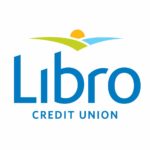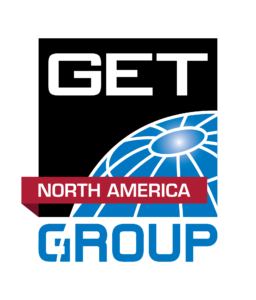- What is the mission and vision of GET Group NA?
GET Group North America has long been committed to combating identification fraud with cutting-edge, end-to-end solutions and personalization capabilities, enabling the most secure ID credentials possible.
Identity solutions are going mobile, and the security of physical documents must carry into this new age. GET Group NA is an early innovator in this space, ensuring that mobile driver’s licenses (mDLs) are standardized to support global interoperability and protect citizen privacy. We are looking to bring standardized in-person interactions into digital identity which has, to date, operated online.
2. Why is trustworthy digital identity critical for existing and emerging markets?
Many use cases we engage in daily require a government issued identity credential. While many other digital identities are becoming more trustworthy, the gap still exists for covering compliance and legal requirements that ID cards currently fulfill. The opportunity exists to improve privacy and control while streamlining physical world processes.
We’ve been working actively with the International Organization of Standardization (ISO) in developing a pivotal standard for mobile ID technology — ISO 18013-5 — which will become the international standard for mDLs upon publication in 2019 and will specify technical and interoperability requirements. The approach in ISO 18013–5 provides mechanisms to obtain and trust the data from an mDL that is similar to how ePassports are trusted. Developing applications on the ISO standard will enable more flexible options for how mDLs can be used globally.
3. How will digital identity transform the Canadian and global economy? How does GET Group NA address challenges associated with this transformation?
While fraud prevention and increased efficiency are often cited as benefits of mobile ID adoption, GET Group NA is also excited about the opportunities for changing the way services can be both delivered and personalized without compromise to citizen privacy. Existing services can be delivered in innovative ways, with the chance to re-personalize customer service and save citizens a considerable amount of time.
More and more daily transactions are taking place on mobile devices, from banking to shopping, and beyond. Having your ID right on your phone adds convenience, as tech-savvy consumers prefer to no longer carry a wallet at all. Increased accuracy will benefit Verifiers, and utilizing multiple modes of standardized interaction will permit Verifiers to provide services to customers in new, streamlined ways. This has the potential to transform economies around the world.
GET Group NA’s GET Mobile ID™ is a mobile identity platform that combines compliance with identity security requirements, privacy by design, and American Association of Motor Vehicles Administrators (AAMVA) standards with the convenience and usability of a mobile application. GET Mobile ID can allow users to securely and efficiently convert to digital identification. Providing a high assurance identity on a user’s mobile device represents a convenient, secure and instant alternative to traditional physical identification documents. GET Mobile ID utilizes formidable data encryption algorithms and communication security measures. It is about putting the citizen in control of their government-issued identity documents and permitting them to securely use their identity everywhere – at point of sale, clubs, stadiums, travel, and for accessing government services.
4. What role does Canada have to play as a leader in the space?
Canada has a united effort led by government, business, and thought leaders to build the most comprehensive framework tailored for Canadian interests. The example being set for the rest of the world makes the DIACC effort worthy of participation. Canada has always led the way in protecting the privacy interests of citizens, and will continue to do so.
5. Why did GET Group NA join the DIACC?
GET Group NA’s history in passport documents has led us to want to mobilize Canadian citizens with ISO 18013-5 standard-compliant identity.
We’re eager to bring our government identity document expertise into DIACC to apply to the Trust Framework, and are actively seeking a Mobile ID or mDL pilot in Canada.
6. What else should we know about GET Group NA?
GET Mobile ID is the first mobile ID solution to support ISO 18013-5-compliant near-field communication (NFC) identity transactions for retail on both iOS and Android devices. GET Group NA and our global partner Scytáles AB are the first to extend the new ISO 18013-5 standard so that iOS devices can also use NFC for data transmission, or allow NFC tap followed by either local or online data transfer, all under citizen control.
Supporting NFC for both iOS and Android devices is critical to developing a variety of more secure and convenient retail, payment, and ID verification use cases for mobile driver’s licenses and other forms of mobile ID.
GET Group North America recently announced a new technology solution, GET Mobile Administrator, which will enable DMVs and other ID card Issuing Authorities to provide mobile driver’s licenses (mDLs) and other forms of mobile identification (mIDs) that comply with global interoperability standards. Read the press release.


